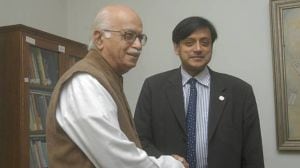Gilani seeks uniform approach on nuke technology transfer
The Pak PM asked major nuclear powers to adopt a uniform approach so that the transfer of atomic technology did not remain the 'prerogative of a chosen few'.
Amid stepped-up efforts by Pakistan to seek a nuclear deal similar to the Indo-US accord,Premier Yousuf Raza Gilani on Monday asked major nuclear powers to adopt a uniform approach so that the transfer of atomic technology did not remain the “prerogative of a chosen few.”
Major nuclear powers,International Atomic Energy Agency and Nuclear Suppliers Group “need to harmonise their policies” to adopt a uniform approach for transfer of nuclear technology for civilian purposes to developing countries,Gilani told a gathering of scientists at the Quaid-e-Azam University in Islamabad.
The new approach should be in conformity with “the right to use nuclear technology for peaceful purposes,” one of the three pillars of Nuclear Non-Proliferation Treaty,he said. “It should not remain a privilege and prerogative of a chosen few.”
Though Gilani did not refer to the Indo-US nuclear deal,he was apparently making a case for Pakistan to be given a similar arrangement for accessing atomic technology and know-how. Pakistan has stepped up efforts to acquire nuclear technology from countries like China in the wake of the Indo-US deal.
“While supporting the objectives of non-proliferation,it is our firm belief that the developing and small nations must be given unhindered access to nuclear energy for civilian purposes because they need it more than the developed nations to grapple with the issues of poverty,deprivation and backwardness,” he said.
Gilani said Islamabad’s nuclear programme is “purely of defensive nature” and Pakistan has “no aggressive designs against any country and remains committed to peaceful co-existence with its neighbours.”
He also claimed that Pakistan’s strategic nuclear programme was largely a response to India’s efforts to develop atomic weapons.
Pakistan’s “emphasis on nuclear energy for peaceful purposes…shifted towards concerns for national security when India detonated a nuclear device in 1974,” he said.
“Pakistan could not afford to remain oblivious to this ominous development and grave threat to its security. Pakistan perforce had to opt for developing a matching response to the Indian nuclear threat,” Gilani said.
The international community “failed to appreciate our concern for security and adopted a discriminatory posture towards Pakistan in the form of political and diplomatic pressure and Pakistan-specific economic sanctions,” he added.
Despite sanctions,scientists of Pakistan Atomic Energy Commission (PAEC) were able to achieve “nuclear parity with India,” he claimed.
Referring to Pakistan’s efforts to generate nuclear energy,Gilani said PAEC plans to add 8800 MW of nuclear power by 2030. The government will support PAEC’s projects and efforts to build centres of excellence,he said.



- 01
- 02
- 03
- 04
- 05




























